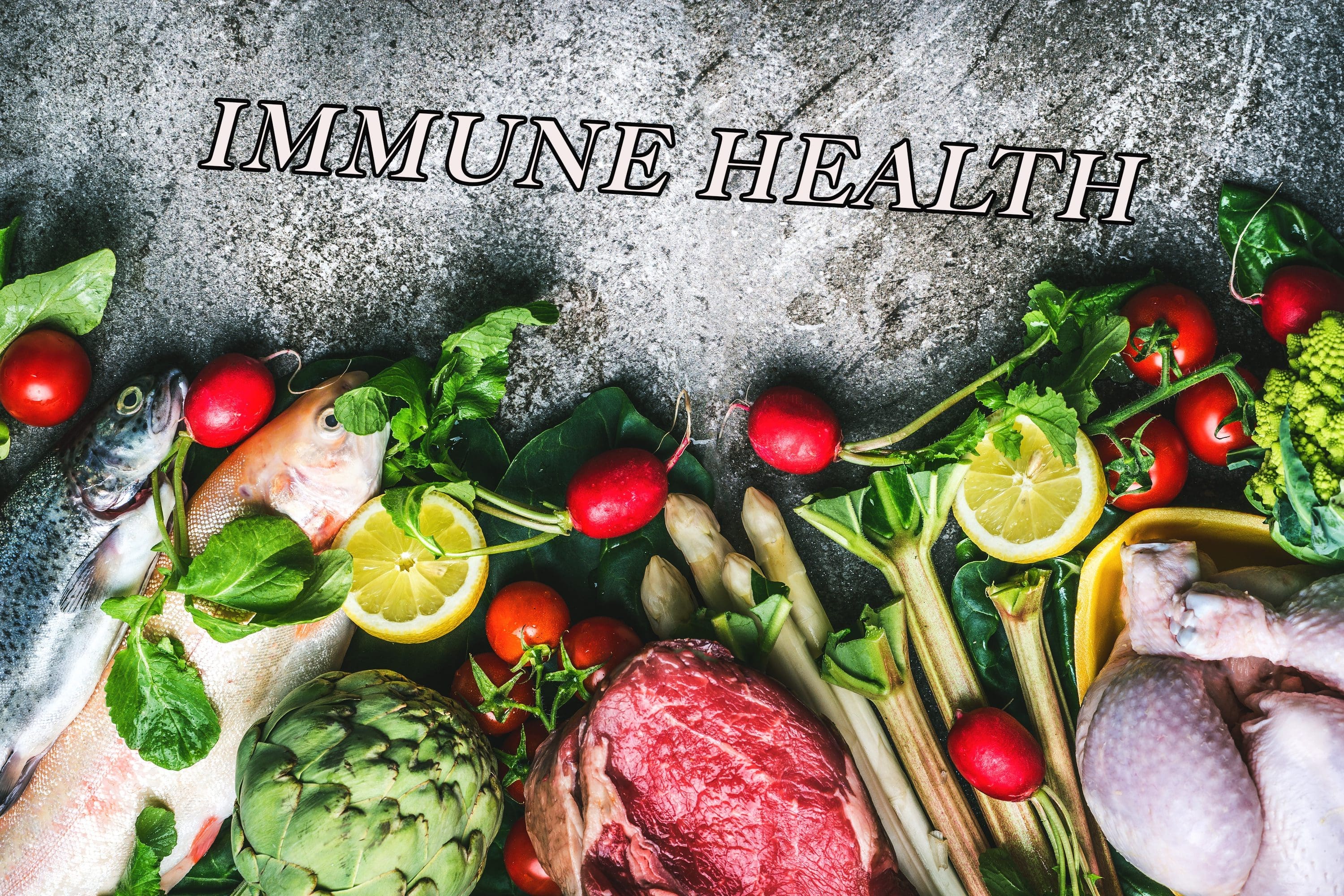Table of Contents
Do you feel:
- Feel hungry an hour or two after eating
- Digestive problems subside with rest
- Excessive belching, burping or bloating
- Stomach pain, burning or aching 1-4 hours after eating
- Sense of fullness during and after meals
If you are experiencing any of the situations, then you might want to try these six types of food to help boost your immune system.
The Immune System
The immune system is the body’s defense mechanism that provides a robust anatomical barrier. The gastrointestinal tract is one of the barriers. It has many defense mechanisms such as peristalsis, gastric acid, bile acids, digestive enzymes, flushing, thiocyanate, defensins, and gut flora in the body. The gut flora is the critical focus for many health professionals; however, all the essential defense mechanisms rely heavily on the gastrointestinal tract to function efficiently.
There are ways to benefit the immune system as one of the ways is to plan meals that are filled with necessary nutrients that can fight off infections. Prebiotic and probiotic-rich foods help enhance microbial diversity in the gut, while vitamin C-rich foods can mop up the free radicals that have entered the body. Another benefit is to avoid foods that promote infections like heavily processed foods, added sugars, and sodas. When it is not consumed in the body, it can help boost immunity and enrich the gut microbiome. Here are the six foods to help boost the immune system in the body.
Yellow Bell Peppers

Due to being the most natural vegetable to find at a local grocery store or farmer’s markets around the world, yellow bell peppers contain more vitamin C than oranges. Since oranges contain about 78% of vitamin C, yellow bell peppers contain about 152% of vitamin C and numerous vitamins and minerals. Bell peppers (yellow, red, orange and green) contain the following:
- Vitamin B6: Bell peppers contain pyridoxine, which is an essential nutrient for the formation of red blood cells.
- Vitamin K1: This vitamin is also known as phylloquinone, which is vital for bone health and blood clotting.
- Potassium: This mineral is essential for improving heart health.
- Folate: Also known as vitamin B9, this vitamin has a variety of functions to the body and is highly essential to take during pregnancy.
- Vitamin E: This is a powerful antioxidant that is essential for healthy nerves and muscles.
- Vitamin A: Red bell peppers are high in beta carotene when consumed converts to vitamin A in the body.
Vitamin C helps boost the immune system by influencing the development and function of lymphocytes, and with about half a cup of yellow bell peppers will give the body those lymphocytes.
Guava
Guava is a traditional remedy for a range of health conditions that a person may encounter. These tropical fruits are seasonal throughout the winter. They contain about 140% of vitamin C and rich with lycopene, which is excellent for the immune system as it plays an essential role in the activities of the enzymes. Lycopene is a powerful antioxidant that has been implicated in having a potentially beneficial impact on several chronic diseases, including cancer.

Studies have been shown that the guava fruit and the leaves have been known to have a positive effect on a range of illnesses and symptoms, including:
- Type 2 diabetes
- Menstrual cramps
- Diarrhea
- Flu
- Blood pressure
- Osteoarthritis
- Cancer
Broccoli
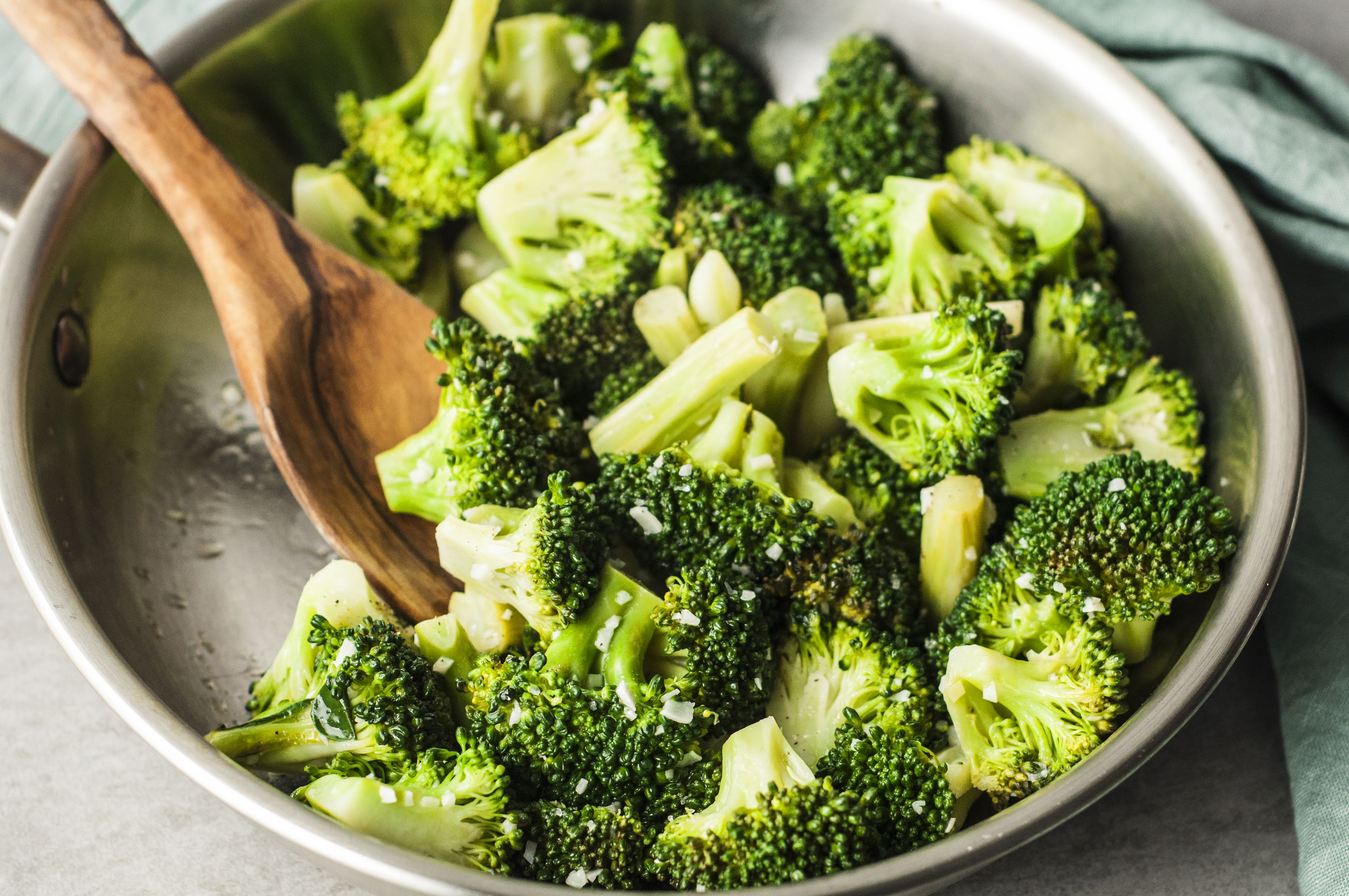
Broccoli is high in phytonutrients like vitamins A, C, and E while also containing sulforaphane. Sulforaphane is activated when broccoli or any cruciferous vegetables are chewed, cut, or damaged. Raw broccoli or broccoli sprouts contain the highest level of sulforaphane when it is not boiled or cooked. Studies have been shown that consuming broccoli has been associated with reducing many lifestyle-related health conditions like:
- Obesity
- Diabetes
- Improves digestion
- Regulate the immune system
- Helps support healthy-looking skin
- Decrease inflammation
- Lowers blood pressure
Turmeric
Turmeric is an excellent immune-boosting food since it supports healthy inflammatory pathways in the body. Inflammation in the body is implicated in the pathophysiology of many health-compromising situations that can lead to chronic illnesses. So consuming pro healthy inflammation foods like turmeric or incorporating turmeric in dishes is an ideal way to boost the immune system.
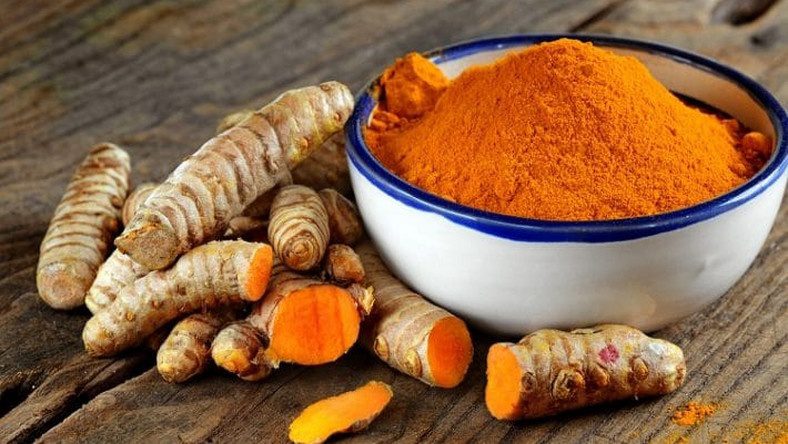
The active component in turmeric is curcumin and has potent biological properties like anti-oxidative, anti-cytotoxic, and neurorestorative properties, making it an essential staple in an immune-boosting food. Here are some of the benefits that turmeric provides to the body:
- Anti-inflammatory properties
- Pain relief on the joints
- Improves liver function
- Reducing the risk of cancer
- Preventing gut inflammation
Green Tea
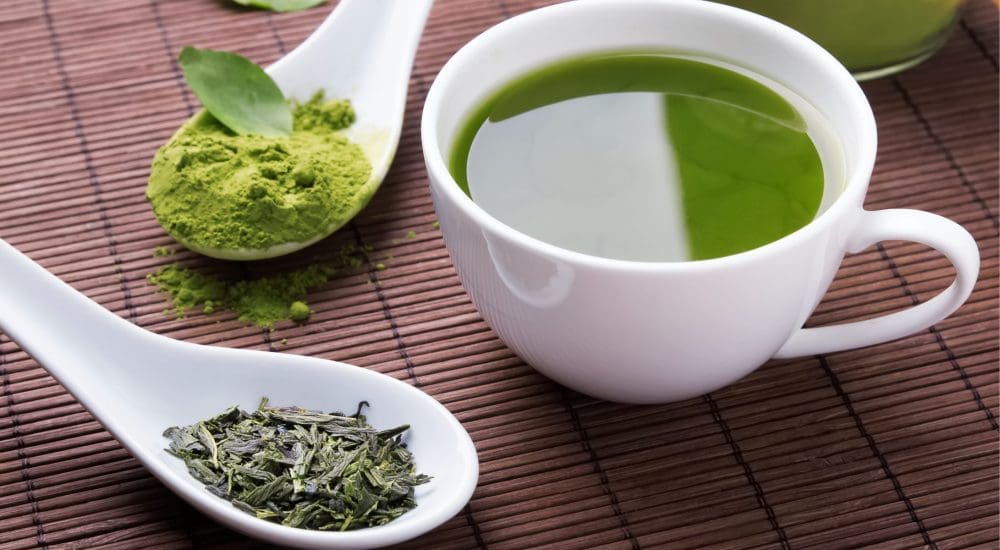
Green tea helps the body relax and contains L-theanine that helps the formation of healthy T-cells. Green tea also contains EGCG (epigallocatechin gallate) and is packed filled with flavonoids to help boost the body’s immune system. Here are some of the health benefits that green tea provides:
- Cancer prevention
- Lowers the risk of cardiovascular diseases
- Lowers cholesterol
- Decrease the risk of a stroke
- Lowers the risk of type 2 diabetes
- Help lose weight
- Helps lowers inflammation on the skin
- Improves brain function
- Helps reduce the risk of Alzheimer’s disease
Almonds
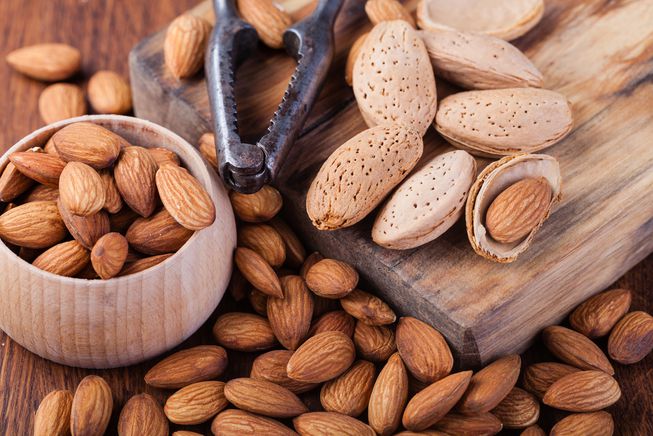
Almonds are packed filled with vitamins, minerals, protein, and fibers. It contains vitamin E and helps boost the immune system since it is a free radical scavenging antioxidant. They are easy to find in any grocery store, and the health benefits that almonds can provide are:
- Lowering cholesterol
- Reduce the risk of cancer
- Provide heart health benefits
- Reduce type 2 diabetes
- Manage weight
Conclusion
Eating these six foods can be beneficial to support a healthy immune system. They are bursting with plant-based nutrition that the body needs to make sure that chronic illnesses like inflammation in the gut. Some products help support the immune system as well as making sure that the gastrointestinal system and the sugar metabolism is supported. Eating a variety of foods that has antioxidants and anti-inflammatory properties is beneficial to the body. With the cold and flu season approaching, it is highly relevant to consume these foods to help fight against the cold and flu and providing assistance to the immune system.
October is Chiropractic Health Month. To learn more about it, check out Governor Abbott’s declaration on our website to get full details on this historic moment.
The scope of our information is limited to chiropractic, musculoskeletal and nervous health issues as well as functional medicine articles, topics, and discussions. We use functional health protocols to treat injuries or chronic disorders of the musculoskeletal system. To further discuss the subject matter above, please feel free to ask Dr. Alex Jimenez or contact us at 915-850-0900 .
Reference:
Ahmed, Touqeer, et al. “Curcuminoids Rescue Long-Term Potentiation Impaired by Amyloid Peptide in Rat Hippocampal Slices. – Semantic Scholar.” Undefined, 1 Jan. 1970, www.semanticscholar.org/paper/Curcuminoids-rescue-long-term-potentiation-impaired-Ahmed-Gilani/c66297f8d0f3b633fac263cbb81f82de1893387a.
Arnarson, Atli. “Bell Peppers 101: Nutrition Facts and Health Benefits.” Healthline, 27 Mar. 2019, www.healthline.com/nutrition/foods/bell-peppers.
Burgess, Lana. “Health Benefits of Guava: How to Use It, Nutrition, and Risks.” Medical News Today, MediLexicon International, 20 Mar. 2019, www.medicalnewstoday.com/articles/324758.php.
Du, Guang-Jian, et al. “Epigallocatechin Gallate (EGCG) Is the Most Effective Cancer Chemopreventive Polyphenol in Green Tea.” Nutrients, MDPI, 8 Nov. 2012, www.ncbi.nlm.nih.gov/pmc/articles/PMC3509513/.
Kim, DS, et al. “Curcuminoids from Curcuma Longa L. (Zingiberaceae) That Protect PC12 Rat Pheochromocytoma and Normal Human Umbilical Vein Endothelial Cells from BetaA(1-42) Insult.” Neuroscience Letters, U.S. National Library of Medicine, 27 Apr. 2001, www.ncbi.nlm.nih.gov/pubmed/11297823.
Luo, Cong, and Xian-Guo Wu. “Lycopene Enhances Antioxidant Enzyme Activities and Immunity Function in N-Methyl-N’-Nitro-N-Nitrosoguanidine-Enduced Gastric Cancer Rats.” International Journal of Molecular Sciences, Molecular Diversity Preservation International (MDPI), 2011, www.ncbi.nlm.nih.gov/pmc/articles/PMC3116194/.
Menon, Venugopal P, and Adluri Ram Sudheer. “Antioxidant and Anti-Inflammatory Properties of Curcumin.” Advances in Experimental Medicine and Biology, U.S. National Library of Medicine, 2007, www.ncbi.nlm.nih.gov/pubmed/17569207.
Nordqvist, Joseph. “Almonds: Health Benefits, Nutrition, and Risks.” Medical News Today, MediLexicon International, 14 Dec. 2017, www.medicalnewstoday.com/articles/269468.php.
Team, Biotics Education. “Key Foods to Boost the Immune System.” Biotics Research Blog, 15 Oct. 2019, blog.bioticsresearch.com/key-foods-to-boost-the-immune-system.
van Gorkom, Gwendolyn N Y, et al. “Influence of Vitamin C on Lymphocytes: An Overview.” Antioxidants (Basel, Switzerland), MDPI, 10 Mar. 2018, www.ncbi.nlm.nih.gov/pubmed/29534432.
Vermeulen, Martijn, et al. “Bioavailability and Kinetics of Sulforaphane in Humans after Consumption of Cooked versus Raw Broccoli.” Journal of Agricultural and Food Chemistry, U.S. National Library of Medicine, 26 Nov. 2008, www.ncbi.nlm.nih.gov/pubmed/18950181.
Ware, Megan. “Broccoli: Health Benefits, Nutritional Information.” Medical News Today, MediLexicon International, 8 Dec. 2017, www.medicalnewstoday.com/articles/266765.php.
Ware, Megan. “Green Tea: Health Benefits, Side Effects, and Research.” Medical News Today, MediLexicon International, 28 Mar. 2017, www.medicalnewstoday.com/articles/269538.php.
Ware, Megan. “Turmeric: Benefits and Nutrition.” Medical News Today, MediLexicon International, 24 May 2018, www.medicalnewstoday.com/articles/306981.php.
Post Disclaimer
Professional Scope of Practice *
The information on this blog site is not intended to replace a one-on-one relationship with a qualified healthcare professional or licensed physician and is not medical advice. We encourage you to make healthcare decisions based on your research and partnership with a qualified healthcare professional.
Blog Information & Scope Discussions
Welcome to El Paso's Premier Wellness and Injury Care Clinic & Wellness Blog, where Dr. Alex Jimenez, DC, FNP-C, a board-certified Family Practice Nurse Practitioner (FNP-BC) and Chiropractor (DC), presents insights on how our team is dedicated to holistic healing and personalized care. Our practice aligns with evidence-based treatment protocols inspired by integrative medicine principles, similar to those found on this site and our family practice-based chiromed.com site, focusing on restoring health naturally for patients of all ages.
Our areas of chiropractic practice include Wellness & Nutrition, Chronic Pain, Personal Injury, Auto Accident Care, Work Injuries, Back Injury, Low Back Pain, Neck Pain, Migraine Headaches, Sports Injuries, Severe Sciatica, Scoliosis, Complex Herniated Discs, Fibromyalgia, Chronic Pain, Complex Injuries, Stress Management, Functional Medicine Treatments, and in-scope care protocols.
Our information scope is limited to chiropractic, musculoskeletal, physical medicine, wellness, contributing etiological viscerosomatic disturbances within clinical presentations, associated somato-visceral reflex clinical dynamics, subluxation complexes, sensitive health issues, and functional medicine articles, topics, and discussions.
We provide and present clinical collaboration with specialists from various disciplines. Each specialist is governed by their professional scope of practice and their jurisdiction of licensure. We use functional health & wellness protocols to treat and support care for the injuries or disorders of the musculoskeletal system.
Our videos, posts, topics, subjects, and insights cover clinical matters and issues that relate to and directly or indirectly support our clinical scope of practice.*
Our office has made a reasonable effort to provide supportive citations and has identified relevant research studies that support our posts. We provide copies of supporting research studies available to regulatory boards and the public upon request.
We understand that we cover matters that require an additional explanation of how they may assist in a particular care plan or treatment protocol; therefore, to discuss the subject matter above further, please feel free to ask Dr. Alex Jimenez, DC, APRN, FNP-BC, or contact us at 915-850-0900.
We are here to help you and your family.
Blessings
Dr. Alex Jimenez DC, MSACP, APRN, FNP-BC*, CCST, IFMCP, CFMP, ATN
email: coach@elpasofunctionalmedicine.com
Licensed as a Doctor of Chiropractic (DC) in Texas & New Mexico*
Texas DC License # TX5807
New Mexico DC License # NM-DC2182
Licensed as a Registered Nurse (RN*) in Texas & Multistate
Texas RN License # 1191402
ANCC FNP-BC: Board Certified Nurse Practitioner*
Compact Status: Multi-State License: Authorized to Practice in 40 States*
Graduate with Honors: ICHS: MSN-FNP (Family Nurse Practitioner Program)
Degree Granted. Master's in Family Practice MSN Diploma (Cum Laude)
Dr. Alex Jimenez, DC, APRN, FNP-BC*, CFMP, IFMCP, ATN, CCST
My Digital Business Card


